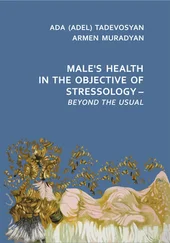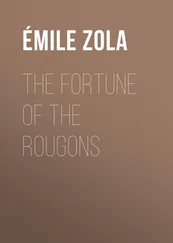Ann wore a tailor-made travel costume and on her head she had a sort of white visored cap, set boyishly askew over her forehead. Paul looked at her calmly for a short while: he felt that he had nothing to say to her, nothing to ask her.
A Bucharest from which Ann was missing became a calm, rather provincial city. It was as if the noise had suddenly retreated, the streets had gone silent. Paul had the impression that he was somewhere in the provinces — in Craiova, in Râmnicu-Sărat, in Roman — one of those small cities where he went sometimes for a trial and where he knew he would find neither surprises nor chance encounters.
Ann’s departure brought him an unexpected peace, a feeling of apathy, of indifference. Everything was colourless, grey and bearable. The respite that came from never waiting in expectation had a certain bitterness, but he greeted it like a welcome slumber. At work letters awaited his answers, at court things remained behind schedule. He returned to these tasks with complete indifference, but determined to let himself get caught up in a mechanical working routine. He composed long business letters, which he typed out himself on the typewriter: he liked to hear the dry noise of the keys, their quick beat. He occasionally saw photographs and reports in the newspapers about the activities in Liège; he read them without curiosity, without discomfort. A few sketches and colour drawings of the Romanian pavilion, which was almost complete, had appeared in an issue of Illustration . On the other hand, the inauguration date was approaching, and Paul, finding the magazine in a restaurant one evening, forgotten on a chair, leafed through it calmly, as if it had nothing to do with Ann.
“Hey, you like what those people do?” an indignant voice said, interrupting his reading.
It was a very well-known painter, who had retreated a few years ago to Iaşi, a professor in the School of Fine Arts there, who showed his paintings less and less frequently in Bucharest, from which he had fled, he claimed, because it was no longer possible to find either good wine or good painting. Paul knew him vaguely from a gallery opening, where his aura of a scowling bear had been greeted by the young painters with a wave of pleasure and fear, for he was known for his penchant for stopping in front of paintings and speaking loudly, almost clamouring, as, red in the face, he hurled either tremendous, unbelievable compliments or, much more frequently, breathtaking curses and abuse.
He sat down at Paul’s table without asking permission, and, taking the magazine in his hand, flipped through it nervously.
“I asked you: do you like it? You tell me, is that painting? You call those canvases? They’ve all gone crazy. They pickup the paintbrush with greed in their hearts and bingo — by nightfall the pavilion’s ready. I’ll tell you, sir, they came to me, too, and asked me: why don’t you come to Liège, Old Man Fănică, and make us a canvas, you’ve ten days, eight metres by six, bingo — here’s the money, bingo — here’s the train ticket… I looked at the money — good money, I don’t have to tell you — I looked at them, and I was dumbfounded. Well then, mister, you guys know what a canvas is, mister? Eight metres by six? Ten days? A hundred days wouldn’t be enough. Give me a year and I’ll do it for you. That’s my difficult task, that’s the subtle task: your head gives in to what’s on the walls right to the end, and not even then would you let it out of your hands, like maybe you’d like to repair it or wipe it away or change it. As those Latins who were our forefathers said: ars longa , old man, ars longa .”
Paul listened to him without curiosity — how alien all this painters’ talk felt! — but with a certain pleasure in hearing a jovial voice that insulted, meted out harsh treatment, became indignant, replied to itself, contradicted itself or expressed approval. It was at least a human being here with him, a human being who looked him in the eyes and urged him to drink. For so many days he hadn’t met anyone, for so many days he hadn’t exchanged a word with anyone. And rather than wandering giddily around the streets, perhaps it was better to sit on this restaurant terrace with empty wine bottles lined up on the gravel beneath the table, with the band playing folk music on violins that occasionally awoke from their torpor, among a few very elegant women in low-cut dresses — it was the beginning of June — which brought to the Bucharest summer night a distant breath of the beach, the sea… The Iaşi painter talked continuously, and each time he emptied a glass his indignation, which grew indolent in between times, went up by half a tone, renewed, setting out for new battles. He kept throwing away the issue of Illustration , then taking it in his hands and opening it again in search of new arguments.
“… Now that girl,” — and he indicated the sketch that Paul only now realized was signed by Ann — “has talent, sir, you know she has talent… I think you know her… Sure, I saw the two of you together at Balcic… Big love affair, eh?”
Paul uttered a bored protest. “No, it’s not what you think. We say hi, we know each other, but it’s nothing…”
“Hey, buddy, let it go. Whether she is or whether she isn’t, it all goes with the territory. Where the lamb treads, the wolf follows. You’re not the first and you won’t be the last. Nobody knows anybody in a big crowd.”
Paul took a long look at the wine glass in his right hand and observed that his hand wasn’t trembling. Far away and deep down, close to his heart, something stopped in its tracks and waited to break or unravel. It was like being under a heavy anaesthetic: he felt the wound, he felt the skin’s resistence to the blade, and the very precise, very exact rending, and yet it didn’t hurt, it didn’t hurt…
“Yes, sir, she’s got talent, but what good has it done her? Talent is like money, you find it everywhere; the key is to know what you’re going to do with it. Look, I feel bad about that girl. I liked her at first and she has a fine hand. She doesn’t wear herself out drawing, but when she puts a line on paper you understand something… Except she needed to work, to wait and above all, she’s afraid, you see? She’s afraid of what she does, and she never knows whether it’s good or bad… I thought she wanted to be a painter — and she could have been, you know? she could if she’d wanted it — but she wants a career. And, bingo, she’s made it. She’s slapping the paint on in Liège for 5000 lei a day. 5000! Nobody’s ever paid me that kind of money, not even 500, and look, on Saint Anthony’s Day I’ll be forty-nine years old, and she’s not even twenty-five and she’s rushing to get 5000 lei a day, which would be enough to wake up poor old Luchian from the dead in a fit of rage. 105000 lei a day! Look here, it’s gone from that guild on the cliff they had back in the days of their nobility, their bloodymindedness, that nobody could buy me no-how, and if I didn’t like your mug, I didn’t sell you a painting, I didn’t sell it to you and you went in peace, at least you would have given me ten times as much gold as the next guy made. But you haven’t forgotten that now everything’s gone to the dogs, to the mob, to pushing to get ahead, even to hauling yourself up by the hair? That girl, sir, she’s come into the painting world like a siren, like an actress who runs after the director, the ministry, her cousin, the kept mistress, in order to get a role, and she sleeps with this one and she sleeps with that one, with the director, with the office manager, even with the porter if she has to, but she doesn’t stop until she gets to the top. Well, do the reckoning with your pencil in your hand of how many of them she’s slept with, at every gallery opening, to get every commission, at every opening night, the sun’ll come up tomorrow and we’ll still be making the list. If you ask me, she sleeps with whoever she feels like if she’s in the mood, after all she’s young and, God bless her, she’s not ugly, but — you get what I’m saying? — you don’t mix getting laid with painting, they don’t mix, they’re two different things, yup, all in all two different things…”
Читать дальше












